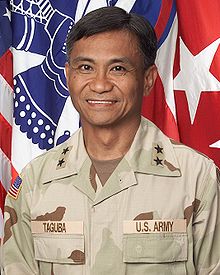 I have to chuckle every time I hear somebody bring up the topic of the Inspector General (IG) to right a wrong in the Air Force. I don't chuckle because it's funny, I do so to fight back the sadness. The service has done a great job imparting to airman the perception that there is actually a system of accountability, although a recent Air Force Times article suggests that the perception isn't quite accurate. The perception is one of accountability, that there is a referee to cut through the politics and ego of bad commanders, and to make the right call when it comes to reprisal or regulations. The reality unfortunately is a Big Blue Hamster Wheel, designed to make the victim of reprisal show his or her cards so that the command can come up with a strategic response as required, and to make the victim run out of energy and hopefully give up trying to right the wrong. Chances of getting the wrong corrected through the IG lie somewhere between slim, and none, unless you happen to have some pull with somebody of influence. Politics trump objectivity.
I have to chuckle every time I hear somebody bring up the topic of the Inspector General (IG) to right a wrong in the Air Force. I don't chuckle because it's funny, I do so to fight back the sadness. The service has done a great job imparting to airman the perception that there is actually a system of accountability, although a recent Air Force Times article suggests that the perception isn't quite accurate. The perception is one of accountability, that there is a referee to cut through the politics and ego of bad commanders, and to make the right call when it comes to reprisal or regulations. The reality unfortunately is a Big Blue Hamster Wheel, designed to make the victim of reprisal show his or her cards so that the command can come up with a strategic response as required, and to make the victim run out of energy and hopefully give up trying to right the wrong. Chances of getting the wrong corrected through the IG lie somewhere between slim, and none, unless you happen to have some pull with somebody of influence. Politics trump objectivity.I have learned this from first hand experience. I have filed two IG complaints in my sixteen years of service, and both as a field grade officer. The first was a complaint against a squadron commander, two full bird colonels, a two star, and a four star, because the command was not complying with regulations that required commanders to give airmen time to work out during normal duty hours. Airmen working twelve hour days, without time to workout, would be punished if they failed the PT test and could be kicked out. I elevated my complaint up every rung of the IG ladder, all the way to the DoD IG. The result? It wasn't investigated, although an Air Force Audit Agency report came out as mine was at the Secretary of the Air Force (SAF) level, and it essentially said the same thing my complaint said. The solution? The regulation requiring commanders to give airmen time to work out during normal duty hours was removed. But my complaint wasn't worthy of even being investigated.
The second complaint I filed, oddly enough not too long after the first one, alleged (again oddly enough) reprisal by that same command. I was given a letter of reprimand by my wing commander, a few months prior to my primary promotion board, and it was placed in my Officer Selection Record (OSR). It had two charges. One, that I had gotten pulled over for allegedly failing to signal a lane change, and arrested with that singular charge. Two, that I had lied in a conversation with Public Affairs (PA) over a story I was considering doing for the Air Force Times. I told the commander that the singular charge of failing to signal a lane change was false, and that I had been unlawfully arrested. He wasn't concerned and didn't wait for it to go to court (where the charge was dismissed), and he wasn't concerned when I told him I would be filing a lawsuit against the police officer in question (which was filed and is ongoing). I filed the IG complaint with the SAF/IG and, against my express wishes, they kicked it down to the IG of the command I said was retaliating against me. They evaluated whether I should be punished for the dismissed failure to signal charge, and they evaluated whether I had lied to PA. To help them evaluate that second charge, I provided the audio from the meeting in question with PA, which I had covertly and legally recorded because I expected retaliation from the command. The audio proved I had not lied, and that it was the PA lieutenant who worked for the wing commander who had lied. The result? The IG found no wrongdoing, and the wing commander went on to become a flag officer.
In my experience, the IG is a complete waste of time. I don't recommend it to anybody who wants to correct a problem. As one of the IGs (a friend of mine) told me during the process, "remember, I work for the commander." Therein lies the problem, and the reason why the Air Force has such a dismal record when it comes to investigating reprisal complaints.







